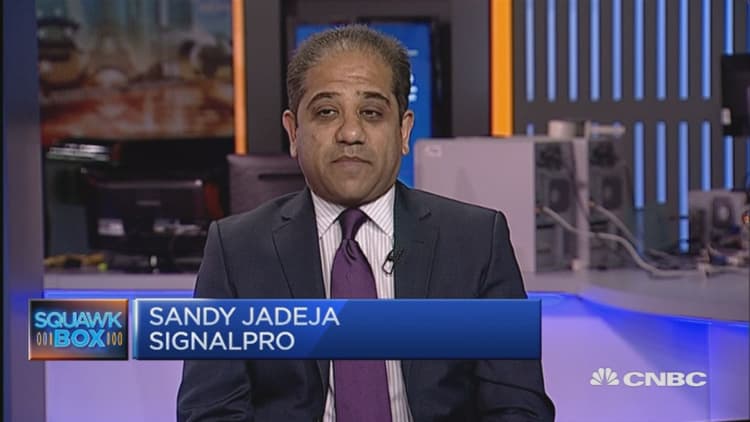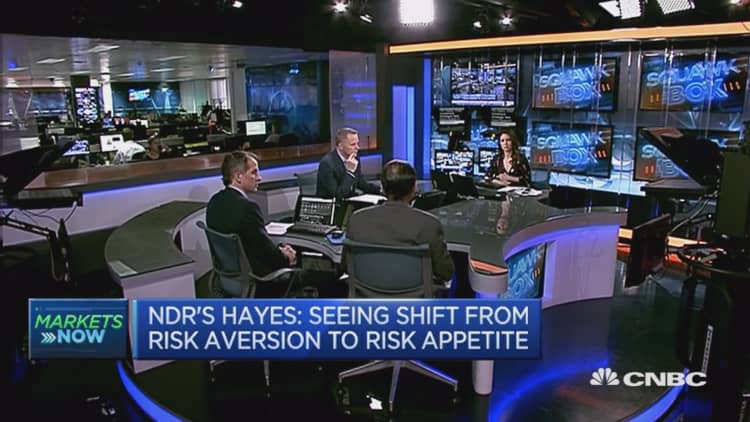

U.S. equity benchmarks have only just reached a "mid-term bull market" but are likely to nonetheless hit a "dangerous period" of choppy trade over the next two months, one strategist has told CNBC.
"On the (Dow Jones industrial average) and the my view is that we're actually hitting a wall," Sandy Jadeja, chief market strategist at SignalPro, told CNBC Thursday.
Looking at short-term cycles based on "time analysis rather than price analysis," the strategist believes there is still life in the current bull market despite it entering its seventh year after the global financial crash of 2008.
This week, the Dow Jones has managed to claw back into positive territory for the year after a steep drop in January with concerns over Chinese growth, the plunge in oil prices and the tightening of monetary policy in the U.S.
Jadeja might be optimistic of a push higher over the longer term but warned traders and investors to expect major volatility ahead.
"We're actually entering quite a dangerous period coming up to the end of April. So possibly this year that 'sell in May go away' is going to come back into effect," he said.
"My concern is going into the end of April ... that time period could be very key for the U.S. markets and the European markets," he added. He said that the Dow could revisit its January lows and "shave off" 800 to 1,200 points.
Global market sentiment has been warming up in the last month and received a shot in the arm last week when the Federal Reserve took no action and indicated it would perform less rate hikes this year. This effectively means more easy monetary policy for the short term and suppressed borrowing rates for corporations and consumers.
"Loose monetary policy increases the appeal of 'risky' assets. This is a positive thing when their valuations are low, as they were in the aftermath of the financial crisis. It is, however, a potentially dangerous thing when their valuations are high," John Higgins, chief markets economist at Capital Economics said in a note on Wednesday.
The question of whether that is the case today is particularly pertinent especially, as Higgins points out, there's speculation that "some central banks may soon begin to drop money from the sky."
Tim Hayes, chief investment strategist at Ned Davis Research, told CNBC on Thursday that he saw "very positive signs of market breadth" in the current environment and suggested it was a "sustainable" recovery in equities from January lows.
On Wednesday, the Florida-based investment firm upgraded equities to "maximum overweight" with a 70 percent allocation in its portfolios. Its own research predicts that global valuations for equities are reasonable and sees relative strength from cyclical sectors and financials, compared to what he sees as weakness in defensive sectors.





